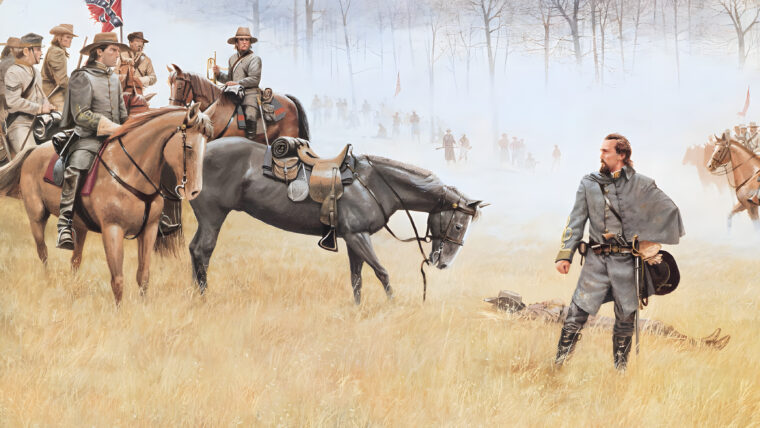
nathan bedford forrest
The Battle of Tupelo, June – July 1864
By Edward Holub and John Marchetti
“For God’s sake, if Mr. Forrest will let me alone, I will let him alone. Read more

nathan bedford forrest
By Edward Holub and John Marchetti
“For God’s sake, if Mr. Forrest will let me alone, I will let him alone. Read more
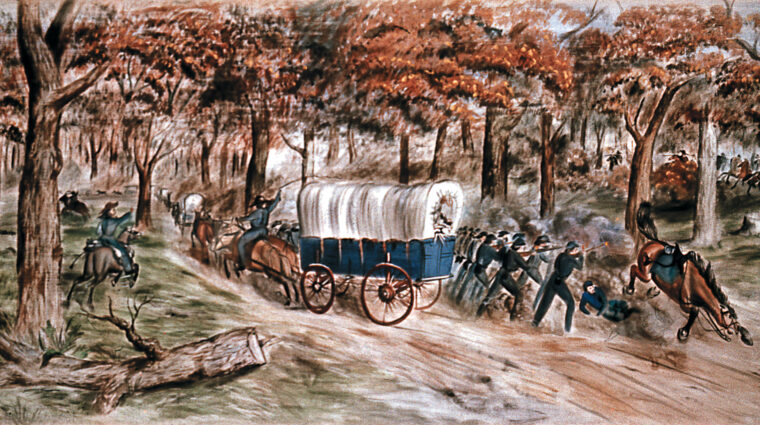
nathan bedford forrest
During the evening of September 20,1863, the following message reached Washington and was given to the president of the United States: “We have met with a serious disaster; extent not yet ascertained. Read more
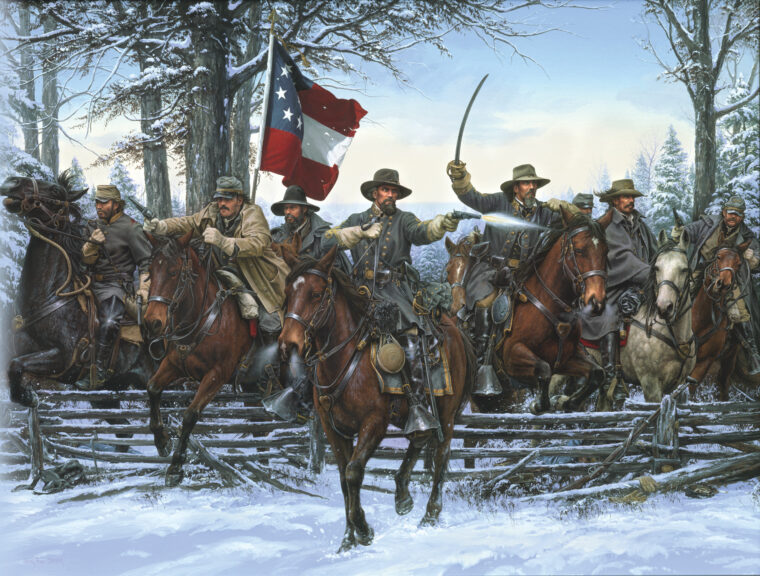
nathan bedford forrest
The winter of 1863 was a time of general inactivity for the exhausted armies in middle Tennessee. Read more

nathan bedford forrest
Coming upon the enemy’s rear guard outside the western Kentucky village of Sacramento, four days after Christmas 1861, Confederate Colonel Nathan Bedford Forrest ordered his cavalry to advance. Read more
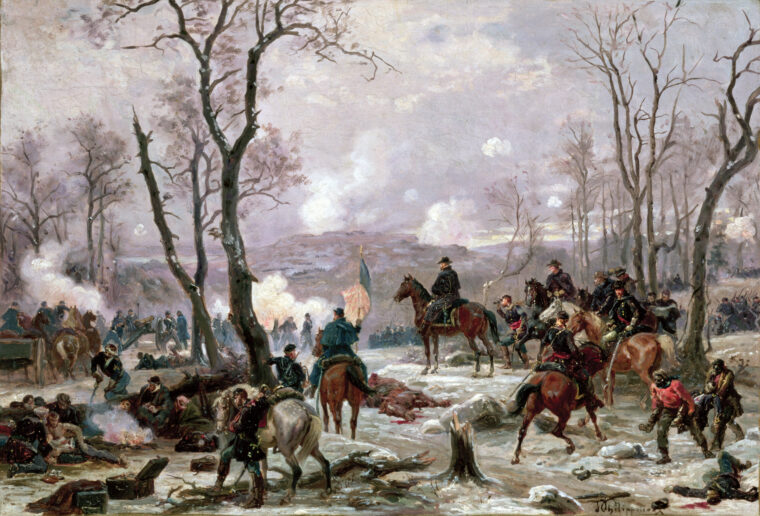
nathan bedford forrest
A signal rocket set off by Confederate pickets streaked skyward in the damp early morning of February 4, 1862. Read more
nathan bedford forrest
Mr. Morris is the author of seven well-received books on 19th Century American history and literature. He has served as a consultant for A&E, the History Channel, and edited a three-book series for Purdue University Press on American Civil War and post-Civil War history, journalism and literature. Read more
nathan bedford forrest
For General Philiip Sheridan, war was a tonic.
“He was a wonderful man on the battle field,” one of his fellow Union officers recalled, “and never in as good humor as when under fire.” Read more
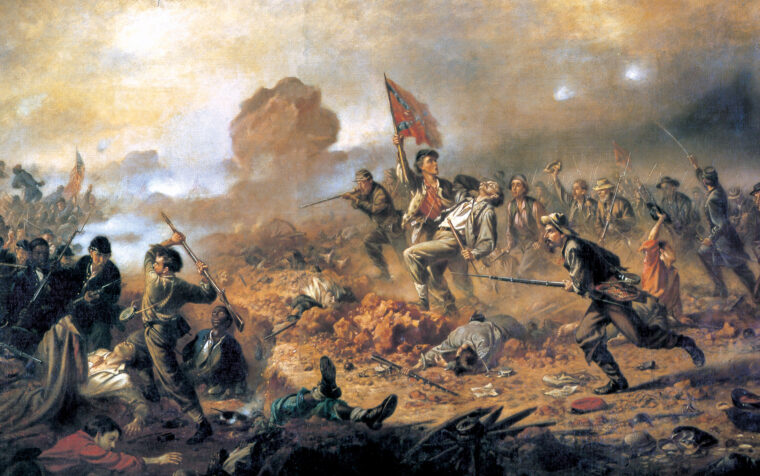
nathan bedford forrest
Of all the unlikely heroes of the Civil War, none was more unlikely than Bushrod Johnson, Ohio-born Quaker turned Confederate general. Read more
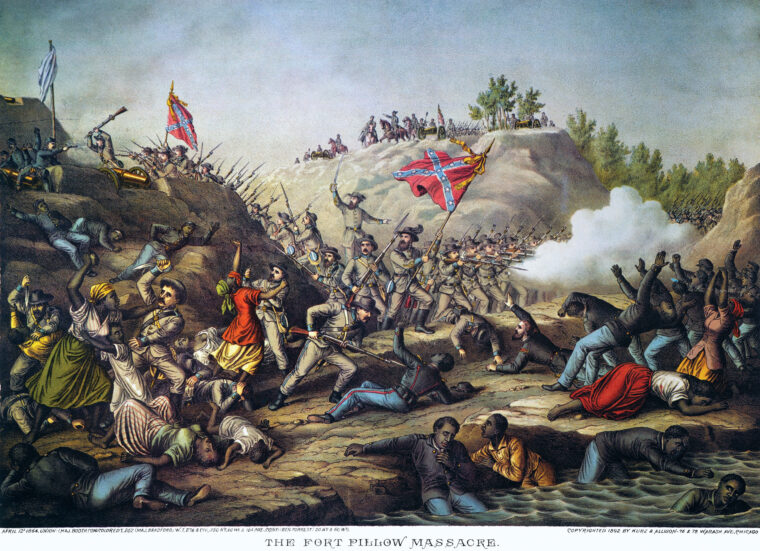
nathan bedford forrest
When Confederate Maj. Gen. Nathan Bedford Forrest and his 3,000 battle-hardened troopers rode back into their homeland of West Tennessee in late March 1864, they were not in the best of moods. Read more
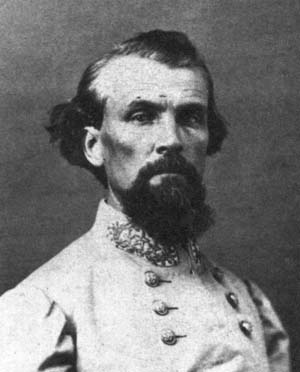
nathan bedford forrest
Prior to the American Civil War, Nathan Bedford Forrest amassed a fortune in real estate, agriculture, and the slave trade. Read more
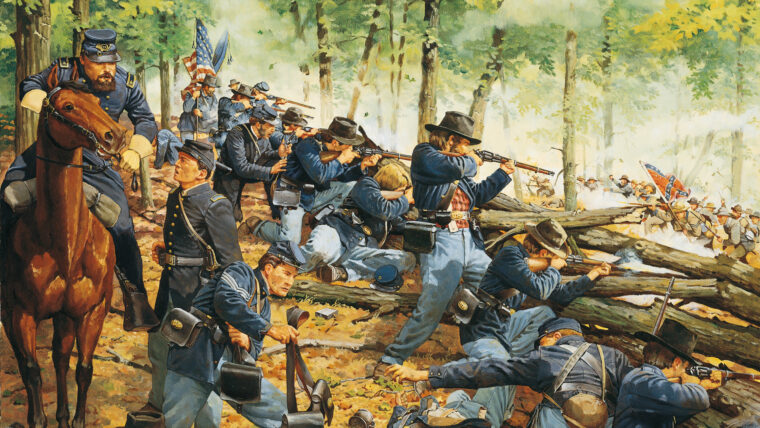
nathan bedford forrest
It was nearly 11 on the morning of September 20, 1863, and the woods around slow-moving Chickamauga Creek in northwest Georgia were ominously quiet. Read more
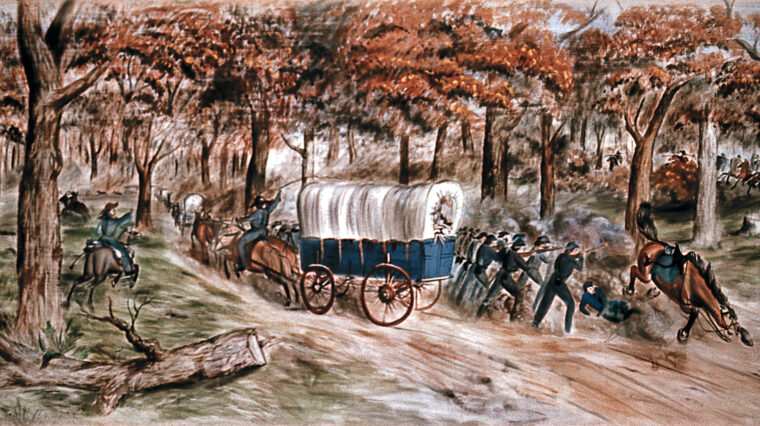
nathan bedford forrest
A cold rain was falling as Confederate Brig. Gen. Joseph Wheeler led his brigade of horse soldiers north from the Confederate position at Stones River at midnight on December 29, 1862. Read more
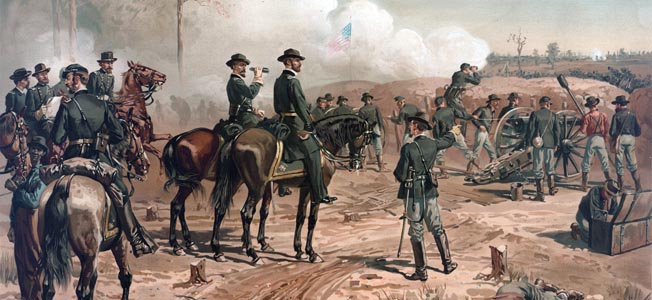
nathan bedford forrest
On September 3, 1864, a triumphant Maj. Gen. William Tecumseh Sherman telegraphed Washington, “Atlanta is ours and fairly won.” Read more
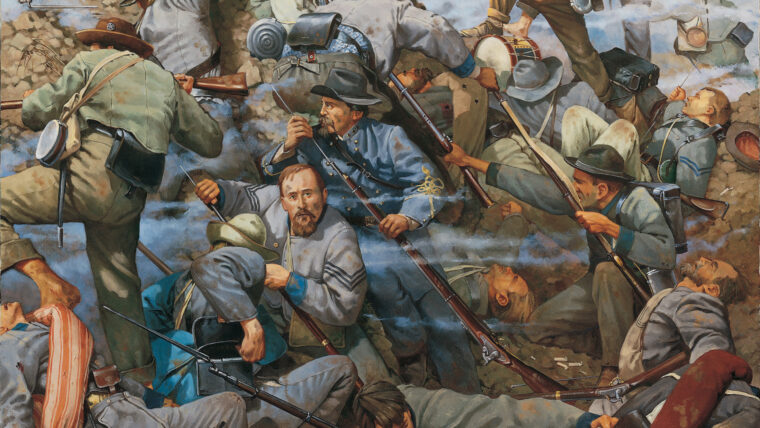
nathan bedford forrest
On the morning of November 30, 1864, Fountain Branch Carter, a 67-year-old farmer, planter, and Confederate sympathizer, watched as his front yard in Franklin, Tennessee, filled up with Union soldiers pitching tents and starting campfires. Read more
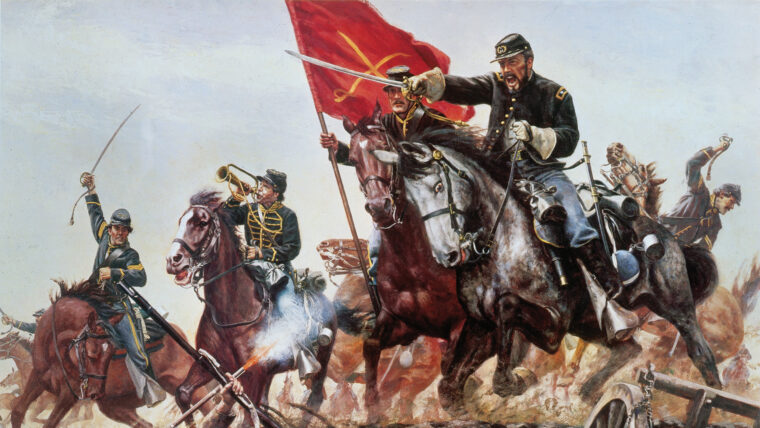
nathan bedford forrest
As reveille sounded through the Union encampments on the south bank of the Tennessee River between Eastport, Mississippi, and Chickasaw, Alabama, on March 22, 1865, sleepy Federal troopers roused themselves, built fires, and cooked breakfast. Read more
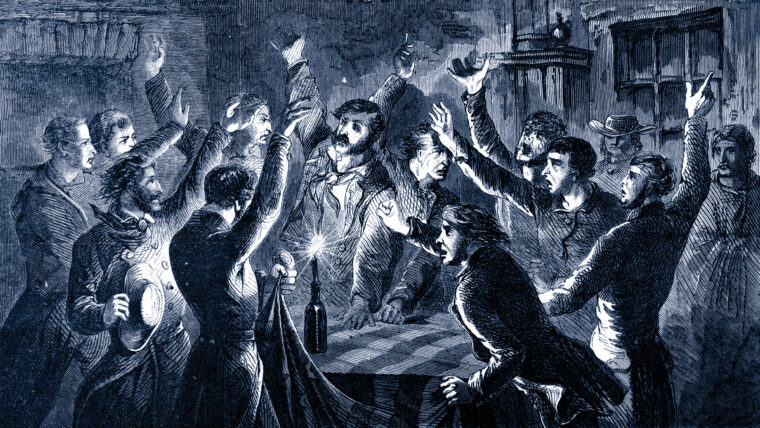
nathan bedford forrest
The Confederate States of America fought two wars, one against the armed forces of the United States and one against fellow Southerners who joined either the Union Army or pro-Union guerrilla groups. Read more
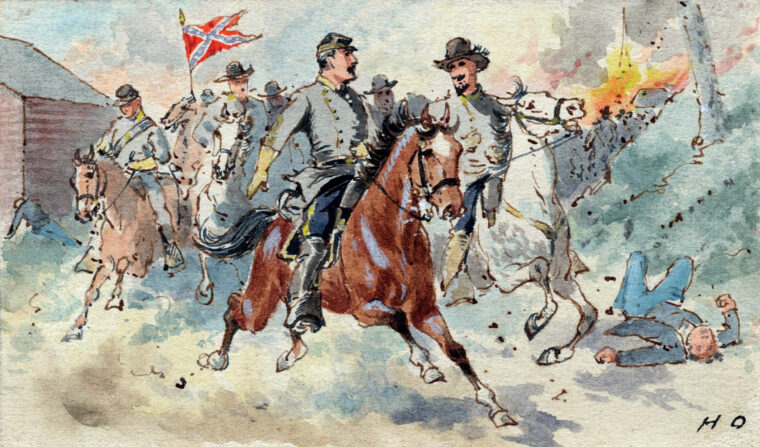
nathan bedford forrest
“It was a sad, sorrowful day,” recalled Confederate Major James McCreary, “and more tears of grief rolled over my weather beaten cheeks on this mournful occasion than have before for years.” Read more
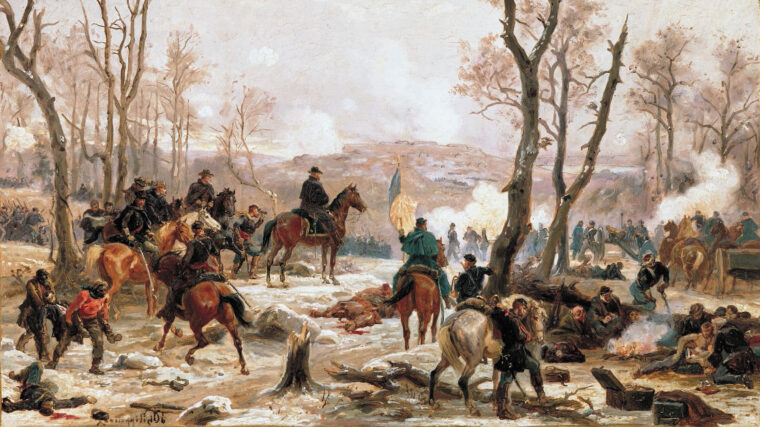
nathan bedford forrest
One evening around Christmas of 1861 Union Maj. Gen. Henry “Old Brains” Halleck, commanding the Department of Missouri, dined with his chief of staff, Brig. Read more
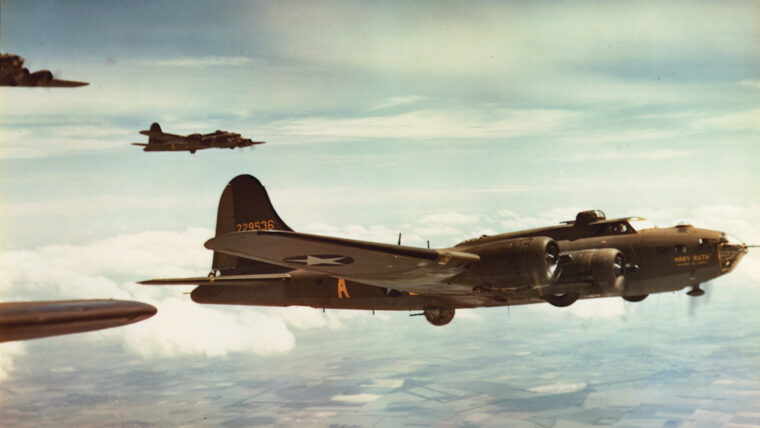
nathan bedford forrest
Behind the strategy that governed the American air war in Europe during World War II lay events and ideas that dated back to World War I and the 1920s. Read more
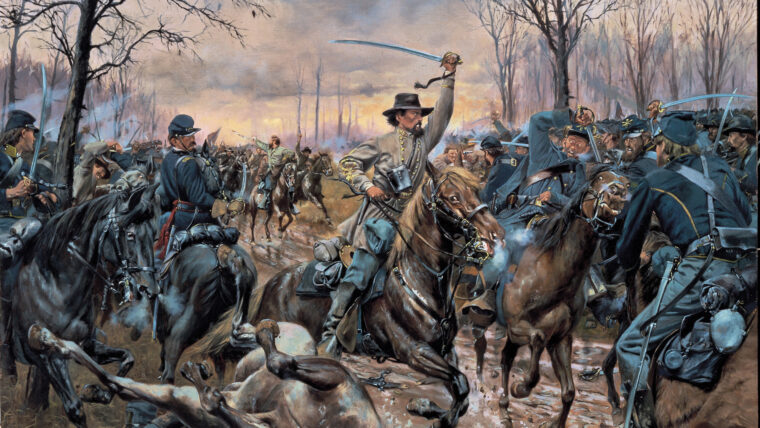
nathan bedford forrest
With the fall of Vicksburg in the first week of July 1863, the strongest remaining Confederate presence in Mississippi was a recently thrown together force of 26,000 soldiers under General Joseph E. Read more